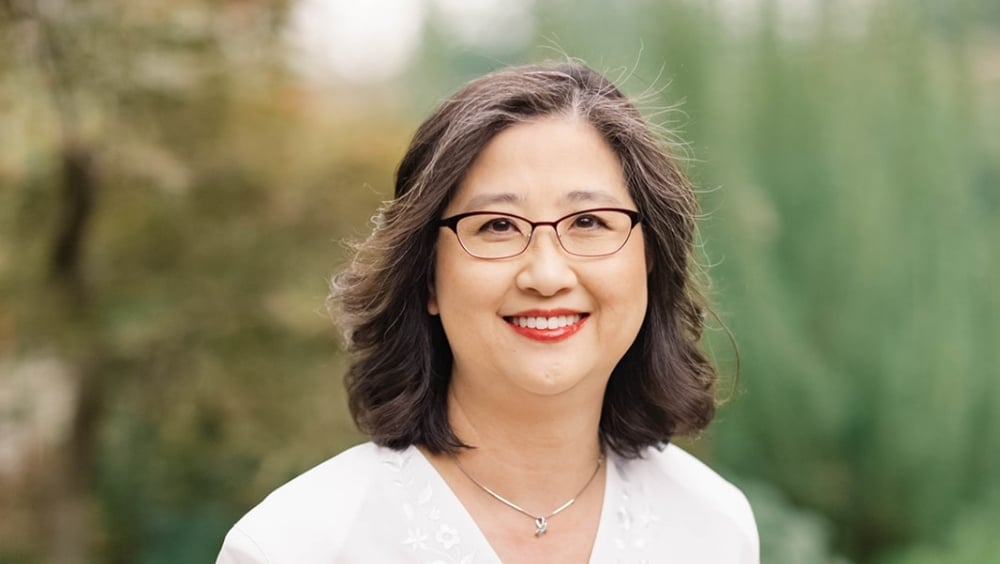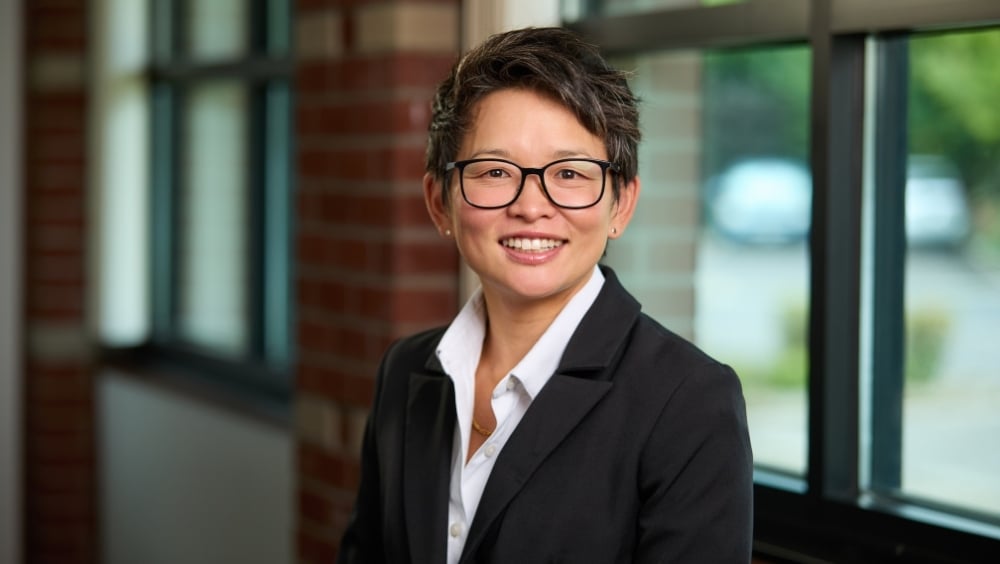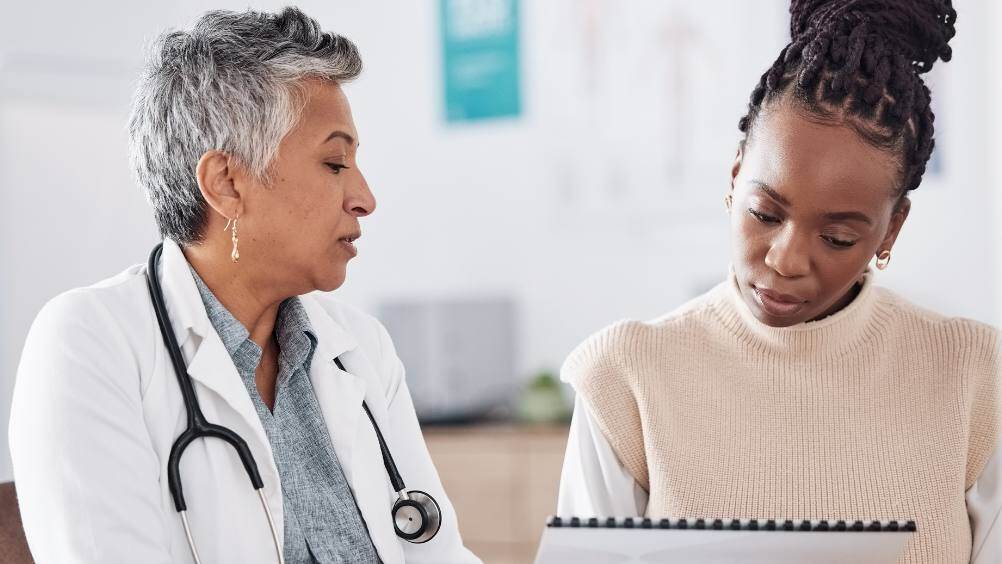Inflammatory breast cancer is an uncommon but aggressive form of breast cancer. About 1% to 5% of breast cancer diagnosed in the United States is inflammatory breast cancer. This rare type of breast cancer occurs most often in younger women, including those under 40.
How Does Inflammatory Breast Cancer Differ from the More Common Types of Breast Cancer?
Inflammatory breast cancer (IBC) got its name because the symptoms suggest an infection in the breast — pain, redness, swelling, and tenderness in the affected breast. However, treatment with antibiotics does not help relieve the discomfort or redness.
IBC is more aggressive because once the cancer cells develop within the milk ducts, they invade the breast's lymph vessels. Then, the cancer cells can spread into the lymph nodes and eventually spread into other parts of the body.
When breast cancer spreads to other parts of the body, it is called metastatic breast cancer (MBC). With inflammatory breast cancer, cancer can spread in just months or, occasionally, in just weeks. That's why it's so important to recognize the symptoms and see a breast care professional immediately.
Quick Facts About Inflammatory Breast Cancer (IBC)
- IBC doesn't look like other breast cancer.
- There usually isn't a lump.
- It doesn't always show up on a mammogram.
- IBC is more aggressive and is almost always "locally advanced" when diagnosed. One-third of patients have metastatic (Stage IV) cancer at diagnosis.
- It's more common in black women, whereas other breast cancers are more common in white women.
- IBC occurs more often in overweight or obese women.
- IBC can be mistaken to be mastitis, a breast infection usually seen in women who are nursing.
- IBC is not a new disease; IBC was first identified and described in 1814 by Sir Charles Bell.
- Black women are at higher risk for IBC.
- Men can also develop IBC.
What Causes Inflammatory Breast Cancer?
The risk factors for IBC are essentially the same as for other types of breast cancer — family history, early menstruation, obesity, alcohol consumption, a diet low in fruits and vegetables, and lack of physical activity. Researchers haven't found any genetic mutations specific to IBC.
The specific cause for the unusual symptoms (see below) is that IBC begins when cancer cells form in your breast's milk ducts. As these cancer cells multiply, they block the lymph vessels, causing the breast to swell and become inflamed because the lymph fluid can't move from the breast tissue.
Symptoms and Signs of Inflammatory Breast Cancer
It's critical to know and recognize the symptoms of IBC because this type of breast cancer can be very aggressive and needs to be promptly diagnosed so that treatment can begin.
- Redness. Redness of your breast is a hallmark symptom of inflammatory breast cancer. All or just part of your breast may be red — the redness associated with IBC is not just a small spot.
- Swelling. One of your breasts may look enlarged, engorged, swollen, or hard/firm.
- Warm. The breast may feel warm to the touch.
- Tenderness. Your breast might feel tender, itchy, or sensitive.
- Orange peel appearance. The skin covering your breast might look dimpled like an orange peel. This sign is known as "peau d' orange."
- Other skin changes. Some patients might see welts, ridges, puckering, or roughness.
- Pain/discomfort. Pain or discomfort in the breast or nipple. Some women experience a burning sensation or aching.
- Inverted or flattened nipple. Especially if you haven't had an inverted nipple before, or the nipple might be flattened out, not fully inverted.
- Swollen lymph nodes. You might feel swollen lymph nodes in your armpit or along your collarbone. Swollen lymph nodes alone are not a sign of cancer but should be checked out by a doctor.
Having some of these signs doesn't always mean that you have inflammatory breast cancer. These symptoms might be caused by mastitis, an infection of the breast usually seen in women who are breastfeeding. Cellulitis can also cause these symptoms. However, if these symptoms last longer than 7-10 days, see your primary care physician or breast health provider.
How is Inflammatory Breast Cancer Diagnosed and Staged?
Because IBC doesn't form a tumor right away, the diagnosis process is somewhat different. Your physician may try a trial of antibiotics to help determine if your symptoms are caused by mastitis, especially if you're pregnant or breastfeeding. For other patients, your doctor will consider the possibility of IBC.
Your physician will do a physical exam to see the extent of redness, swelling, and dimpling of the skin covering your breast. They'll also check the lymph nodes along your collarbone and in your armpit — swollen lymph nodes are found in almost all inflammatory breast cancer patients. The doctor may order a mammogram, MRI, or breast ultrasound to help detect evidence of possible cancer.
If cancer is suspected, your doctor will order a biopsy of suspicious areas found during breast imaging tests. Your biopsy is usually a skin punch biopsy or ultrasound-guided core needle biopsy. If cancer is found, the doctor usually orders CT scans, biopsies of lymph nodes, and a bone scan to determine the patient's breast cancer stage.
All inflammatory breast cancers are deemed to be one of three stages:
- Stage IIIB denotes that the IBC has spread locally to the skin, chest wall, or breast muscles.
- Stage IIIC denotes that a patient's IBC has spread to the lymph nodes in the area surrounding your collarbone and possibly, to the lymph nodes under your arm or in your breast as well as into tissue near your breast.
- Stage IV denotes that cancer has spread to other parts of your body, usually to the lungs, liver, brain, and/or bones.
Your oncologist will determine your hormone-receptor status — most IBC is hormone-receptor negative. They will also check your human epidermal growth factor receptor 2 (HER2) status — many inflammatory breast cancers are HER2 positive. These determinations help guide breast cancer treatment decisions.
Treatments for Inflammatory Breast Cancer
Today surgery is quite often NOT the first course of treatment for breast cancer. For many patients, they will shrink it first and then do breast cancer surgery. IBC patients receive chemotherapy first to help shrink their tumor. If they test positive for high levels of HER2 (a growth-promoting protein found on the outside of all breast cancer cells), oncologists administer a drug that helps block this protein to help stop their growth. IBC patients whose tumor is estrogen or progesterone positive will receive hormone therapy in addition to chemotherapy.
Doctors recommend a mastectomy because this type of cancer is fast-growing and advanced in most patients. Radiation after surgery helps kill any remaining cancer cells.
The prognosis for inflammatory breast cancer patients continues to improve as new breast cancer treatments become available. Suppose you or a family member or friend is diagnosed with inflammatory breast cancer (or any other type of breast cancer). In that case, Willamette Valley Cancer Institute breast cancer doctors provide competent, compassionate care while allowing you to stay close to home. With breast cancer centers in Albany, Eugene, Corvallis, Florence, Lincoln City, and Newport, Oregon, we provide state-of-the-art care without the stress of long-distance travel.





